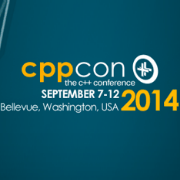Stroustrup on "The Essence of C++" -- Montreal, Canada, on October 7
Just announced today, Bjarne Stroustrup will be giving a free public talk in Montreal, Canada, on October 7:
Bjarne Stroustrup, celebrated inventor of the C++ language, in Montreal
A free conference presented October 7 by Morgan Stanley and TechnoMontréal
From the press release:
This free event, presented in collaboration with TechnoMontréal, will be held at Place des Arts at 2:30 pm. Only 1,000 tickets are available and can be booked through the Place des Arts box office.
The conference, presented in English, will be of particular interest to software developers. Building on the distinctive foundations of C ++, Stroustrup will examine how new and existing features support (or distract from) programming, and how they promote an innovative style of design that is more efficient. Developers from Morgan Stanley's Technology & Engineering Centre in Montreal will be present to answer questions after the conference.
The Essence of C++
A technical conference with Bjarne Stroustrup
October 7, 2014, from 2:30 to 4:30 pm
(Doors open at 2:00 pm)
Places des Arts, Théâtre Maisonneuve
175 Ste Catherine Street WestFree event – limited seating!

